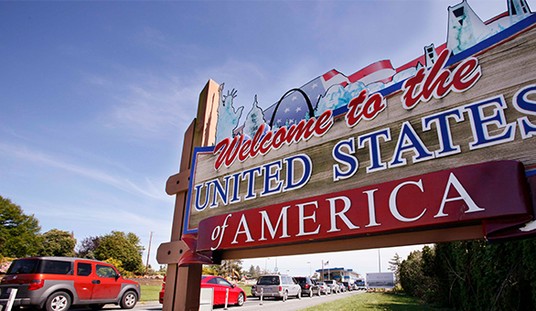Did Donald Trump needlessly offend world leaders with his personal attacks on Kim Jong-un and threats to “totally destroy” North Korea? ABC’s George Stephanopoulos asked UN ambassador Nikki Haley about criticism from an EU foreign minister after the speech, but Haley reassured Stephanopoulos of the success of Trump’s speech. More than one envoy at the UN has adopted the “Rocket Man” nickname, she tells the Good Morning America host, and they furthermore appreciated Trump’s “blunt, honest approach”:
“This is a way of like getting people to talk about [Kim],” Haley said in an interview with ABC News chief anchor George Stephanopoulos on “Good Morning America.”
“It worked,” Haley laughed. “Every other international community is now referring to him as ‘Rocket man.'” …
The former South Carolina governor said the U.S. has “exhausted every diplomatic means” in trying to deal with North Korea, including dialogue and sanctions.
“And we are going to continue to do that. While he is being irresponsible, we’re going to be responsible,” Haley said. “The international community actually very much appreciated the blunt, honest approach that the president took on North Korea.”
There’s no doubt that a “blunt, honest approach” is a change of pace at Turtle Bay, and also no doubt that using demeaning nicknames from the General Assembly podium is as well. Both are certainly open to criticism, but they’re hardly the real issue. It’s not the first time a multilateral forum has heard threats between nations, either. Iran routinely calls for the destruction of the “Great Satan” United States, and the UN’s own Human Rights Commission seems obsessed with the implicit destruction of Israel.
The real issue on which these diplomats should focus is North Korea’s launching of missiles at and over Japan and its development of miniaturized hydrogen bombs, which are a wee bit more dangerous than the phrase “Rocket Man.” Threatening to pull out of the Iran deal is also a little less important than Iran’s continued support for terrorist groups such as Hamas and Hezbollah, plus their refusal to allow IAEA inspectors into military facilities to ensure compliance with the deal. They’re clucking tongues at Trump, but those same tongues have been mighty silent on the latter issue.
Besides, at least one nation (other than Israel) thought Trump’s speech was spot-on. Guess who?
Russian Foreign Minister Sergey Lavrov told The Associated Press in an interview that he heard positive news in President Donald Trump’s United Nations address: “that the U.S. would not impose its way of life on others.”
“I think it’s a very welcome statement, which we haven’t heard from an American leader for a very long time,” said Lavrov, who sat down with the AP and Russia’s Tass news agency Tuesday, directly after meeting with U.S. Secretary of State Rex Tillerson. …
Lavrov did not criticize Trump’s threat to “totally destroy” North Korea if the U.S. is forced to defend itself from Pyongyang. He said Trump has spoken in the same vein many times. “We don’t doubt that the United States has capacity to do something very destructive,” he said.
That’s an interesting take, although perhaps not one of the primary motivations behind the speech. Lavrov seems willing to overlook that Trump also challenged other nations to respect sovereign borders, and specifically named Ukraine as a case in point. It looks like Russia would like an exit from the mini-Cold War that has erupted over the past year or so, but still on its own terms. Flattery might not get Lavrov everywhere, but in the Trump administration, it certainly doesn’t hurt.
Addendum: Japan certainly understands the priorities:
Japan spokesman on Trump 'destroy' remark: "We view favorably Mr. Trump's stance that all options are on the table" https://t.co/dprmjTSjpI
— Alastair Gale (@AlastairGale) September 20, 2017
Update: Made some minor editorial changes for style purposes.








Join the conversation as a VIP Member